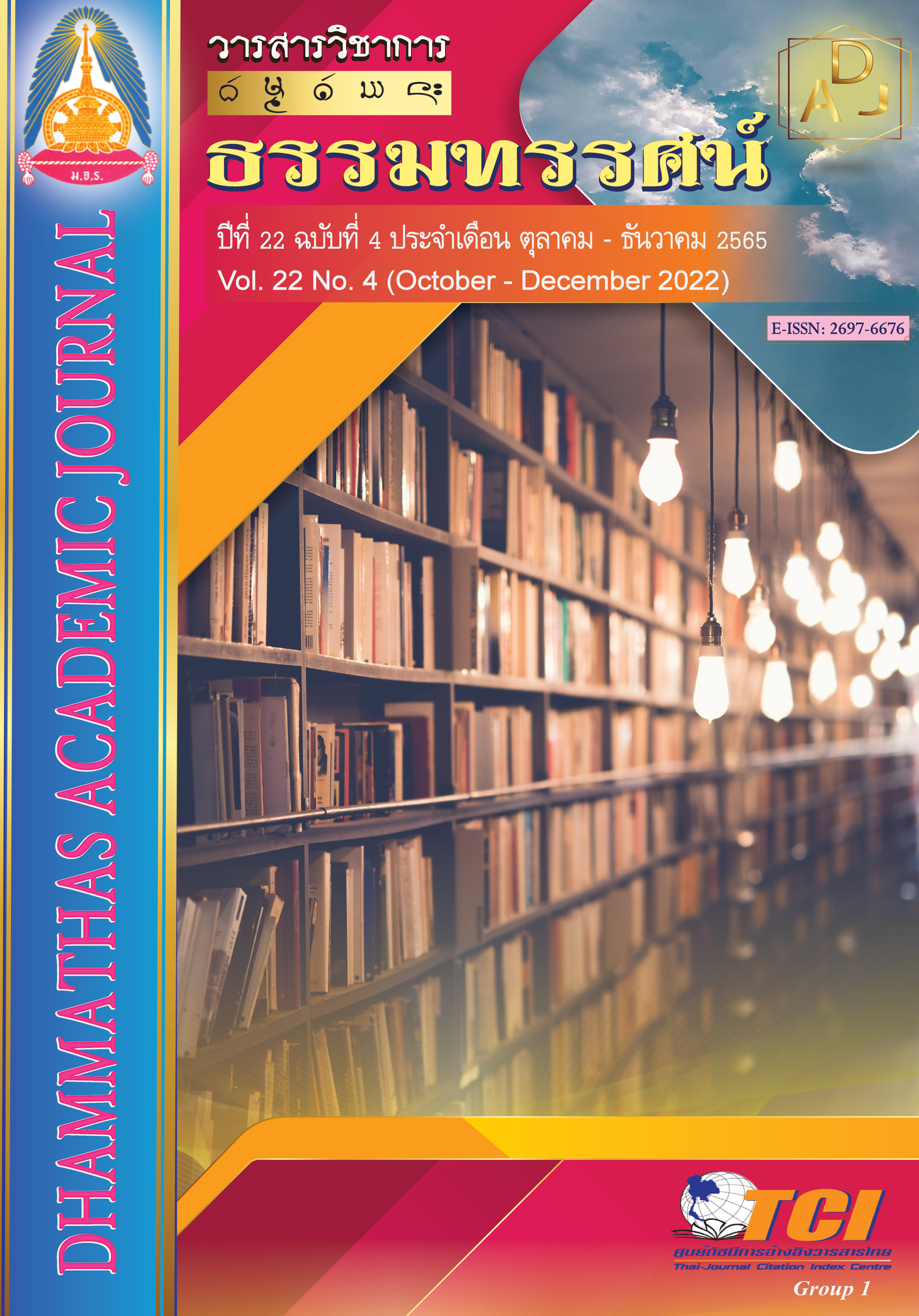The Guidlines for Promoting Sufficency Economy Principles with the Doctrine of Duddhism on Thungkularonghai Community, Kasetwisai District Roi-et Province
Main Article Content
Abstract
The objectives of this research aim to; 1) study the promotion of sufficiency economy principles, 2) explore the economic problems in Thung Kula Ronghai Community, Kaset Wisai District, Roi Et Province, 3) investigate the guidlines for promoting the sufficiency economy principles with Buddhist Principles in Thung Kula Ronghai Community, Kaset Wisai District, Roi Et Province. This research is qualitative research by collecting in-depth interview as the data following the research methodology.
The research results were found that:
1. The promotion of the sufficiency economy principles with Buddhist principles: the principle of solitude, which means living a life of self-sufficiency. The right livelihood is an honest occupation. Ditthamikatta 4 is to know how to use the available resources to the maximum benefit.
2. The economic problems in this community, the results revealed that 1) poverty, 2) drought and 3) pesticides.
3. The guidlines to promoting sufficiency economy with Buddhist principles to solve problems in Thung Kula Ronghai community, KasetWisai District Roi Et Province for sustainable development of the quality of life of the community is 1) for poverty, people should focus on the community to maintain sufficiency in both consumption and lifestyle including honesty, patience, diligence and avoiding actual trends. 2) for drought people should manage water in various forms such as dredging swamps irrigation and 3) for chemical problems, they should use of organic fertilizers for reducing chemicals.
Article Details

This work is licensed under a Creative Commons Attribution-NonCommercial-NoDerivatives 4.0 International License.
เพื่อให้เป็นไปตามกฎหมายลิขสิทธิ์ ผู้นิพนธ์ทุกท่านต้องลงลายมือชื่อในแบบฟอร์มใบมอบลิขสิทธิ์บทความ ให้แก่วารสารฯ พร้อมกับบทความต้นฉบับที่ได้แก้ไขครั้งสุดท้าย นอกจากนี้ ผู้นิพนธ์ทุกท่านต้องยืนยันว่าบทความ ต้นฉบับที่ส่งมาตีพิมพ์นั้น ได้ส่งมาตีพิมพ์เฉพาะในวารสาร วิชาการธรรม ทรรศน์ เพียงแห่งเดียวเท่านั้น หากมีการใช้ ภาพหรือตารางของผู้นิพนธ์อื่นที่ปรากฏในสิ่งตีพิมพ์อื่นมาแล้ว ผู้นิพนธ์ต้องขออนุญาตเจ้าของลิขสิทธิ์ก่อน พร้อมทั้ง แสดงหนังสือที่ได้รับการยินยอมต่อบรรณาธิการ ก่อนที่บทความจะได้รับการตีพิมพ์References
กระทรวงวัฒนธรรม. (2559). แผนแม่บทส่งเสริมคุณธรรมแห่งชาติ ตามมติคณะรัฐมนตรี ฉบับที่ 1 พ.ศ. 2559-2564. กรุงเทพฯ: กระทรวงวัฒนธรรม.
กระทรวงสาธารณสุข. (2557). ข้อมูลการประกอบอาชีพเกษตรกรรมในประเทศ. กรุงเทพฯ: สำนักงานโรคจากการประกอบอาชีพ.
จำนง อดิวัฒนสิทธิ์. (2545). สังคมวิทยาตามแนวพุทธศาสตร์. กรุงเทพฯ: มหาจุฬาลงกรณราชวิทยาลัย.
ใต้ร่มพระบารมีพระบรมธรรมิกมหาราชา. (2550). การพัฒนาที่ยั่งยืน. กรุงเทพฯ: จุฬาลงกรณ์มหาวิทยาลัย.
บุญมี แท่นแก้ว. (2539). จริยศาสตร์. กรุงเทพฯ: โอเดียนสโตร์.
พระเทพรัตนมุนี. (2557). การเกษตรแนวพุทธเพื่อแก้ปัญหาเศรษฐกิจชุมชน. (วิทยานิพนธ์พุทธศาสตรดุษฎีบัณฑิต). พระนครศรีอยุธยา: มหาจุฬาลงกรณราชวิทยาลัย.
พระพรหมคุณาภรณ์ (ป.อ. ปยุตฺโต). (2551). พจนานุกรมพุทธศาสน์ฉบับประมวลศัพท์. (พิมพ์ครั้งที่ 12). กรุงเทพฯ: มหาจุฬาลงกรณราชวิทยาลัย.
_______. (2553). พุทธธรรม ฉบับปรับปรุงและขยายความ. (พิมพ์ครั้งที่ 20). กรุงเทพฯ: สหธรรมิก.
ราชบัณฑิตสถาน. (2546). พจนานุกรมภาษาไทย ฉบับราชบัณฑิตสถาน. กรุงเทพฯ: นานมีบุ๊คส์พับลิเคชัน.
วรานี เวสสุนทรเทพ. (2558). ถอดรหัสปรัชญาเศรษฐกิจพอเพียง: จากทฤษฎีสู่การปฏิบัติ. กรุงเทพฯ: มหาวิทยาลัยราชภัฏสวนดุสิต.
ศศิวรรณ กำลังสินเสริม. (2550). พุทธกระบวนทัศน์ในการดำเนินชีวิตยุคบริโภคนิยม. (วิทยานิพนธ์พุทธศาสตรดุษฏีบัณฑิต). พระนครศรีอยุธยา: มหาวิทยาลัยมหาจุฬาลงกรณราชวิทยาลัย.
สำนักงานคณะกรรมการพัฒนาการเศรษฐกิจและสังคมแห่งชาติ. (2560). แผนพัฒนาเศรษฐกิจและสังคมแห่งชาติ ฉบับที่ 12 พ.ศ. 2560-2564. กรุงเทพฯ: สำนักนายกรัฐมนตรี.
สำนักบริหารการสาธารณสุข. (2555). รูปแบบโครงการสร้างเสริมสุขภาพวิถีพุทธ. กรุงเทพฯ: ชุมนุมสหกรณ์การเกษตรแห่งประเทศไทย จำกัด.

